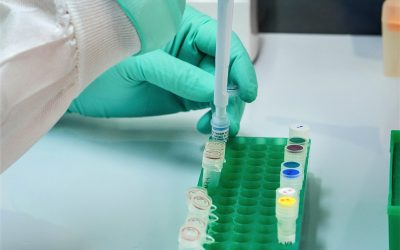There are a whole host of reasons why people with IBS shouldn’t eat late at night. But there is also nuance! Sometimes it can be helpful, or even important to eat later in the day.
So why shouldn’t we eat before bedtime?
Does the time of day we eat affect our digestion?
There is research to suggest eating late at night regularly can increase your overall body weight, might contribute to higher blood pressure, and blood sugar irregularities.
But since I focus on digestion here are three reasons why you shouldn’t eat our main meal late at night if you have IBS. (See below for when eating late at night is a good idea).
1. Eating late may affect next day’s digestion
People who eat later before bed have been shown to be less sensitive to blood sugar levels the next morning after eating their breakfast. Healthy adults who ate a late meal had significantly higher blood glucose levels for 3 hours after breakfast the next day.
When they had higher blood glucose levels the researchers saw a delay of stomach emptying after eating and reduced motility. They also reported that the blood levels of the motility-stimulating hormone (motilin) were significantly low during the time of higher blood sugar.
This might mean your breakfast sits heavy in your stomach and you get more nausea or gas.
2. Eating late at night can increase reflux
If you eat a big meal late at night and then lie down for bed you can sometimes force the valve at the top of the stomach to open.
This means your food (and stomach acid) can spill into the oesophagus.
If you are sensitive to heartburn or have GERD you might need to take care to leave a gap between the last meal of the day and bedtime. Around 2-3 hours is normally sufficient to let most of the food move out of your stomach.

3. If you eat late at night you might feel more hungry next day
When we eat our insulin levels go up. As well as managing our blood sugars, insulin also produces one of our hunger hormones, ghrelin.
When we have a pause from digesting at night, say 12 hours, then our ghrelin levels are reset, but if we have less than 12 hours we can feel more hungry the next day. To make the most of the fasting time until morning, aim to leave 12 hours between your dinner and your breakfast.
When it’s good to eat late at night
Despite reading all those reasons above why it’s not great to eat later on, there are also lots of reasons why eating later can be a good idea!
1. If you’re hungry before bed
Going to bed hungry isn’t a good idea. You don’t sleep well if your body hasn’t had enough food.
You may find you wake up in the early hours of the morning and struggle to get back to sleep. This is often down to a blood sugar crash because you haven’t eaten enough during the day.

2. If you need to gain weight
Some people I work with are underweight due to undereating caused by eliminating too many foods. I often work with clients on how to increase their calories without triggering digestive issues.
A small snack between meals will help add to the overall calorie intake for the day. You can eat something before bed if you need to focus on increasing your day’s energy intake.
Resolving a normal body weight and regulated digestion is a top priority because undereating can actually cause symptoms of IBS.

IBS Nutritionist
Hi, I'm Anna Mapson, registered Nutritional Therapist.
I help people with IBS and SIBO get control of unpredictable gut symptoms to find long term relief from painful and embarrassing IBS without restrictive dieting.
I can help you to:
- understand your digestion better, so you recognise your triggers
- eat a well balanced diet, with tasty meals that are simple to prepare
- reintroduce your trigger foods so you can get back to enjoying food again
Find more about my 3 month 1:1 Gut Reset programme.
IBS & Disordered Eating – Food Anxiety
Can elimination diets for IBS lead to disordered eating? If you're worried about how much you think about food and your digestion this article might help. Anxiety about food and IBS are very common in my clients, and after working with so many clients across the world...
Could meditation help your gut health?
There is a growing body of evidence about the link between the brain and our gut, so how does meditation help improve gut health? Many of my clients notice that when they are more stressed their digestive system will be affected. We are all familiar with stress...
Should I get a stool test for IBS?
If you've had IBS for a while you might be considering getting a stool test, but should you bother? As an IBS nutritionist I sometimes use this tool to help my clients. What can a stool test tell you? Stool testing can tell you your levels of abundance of healthy and...


